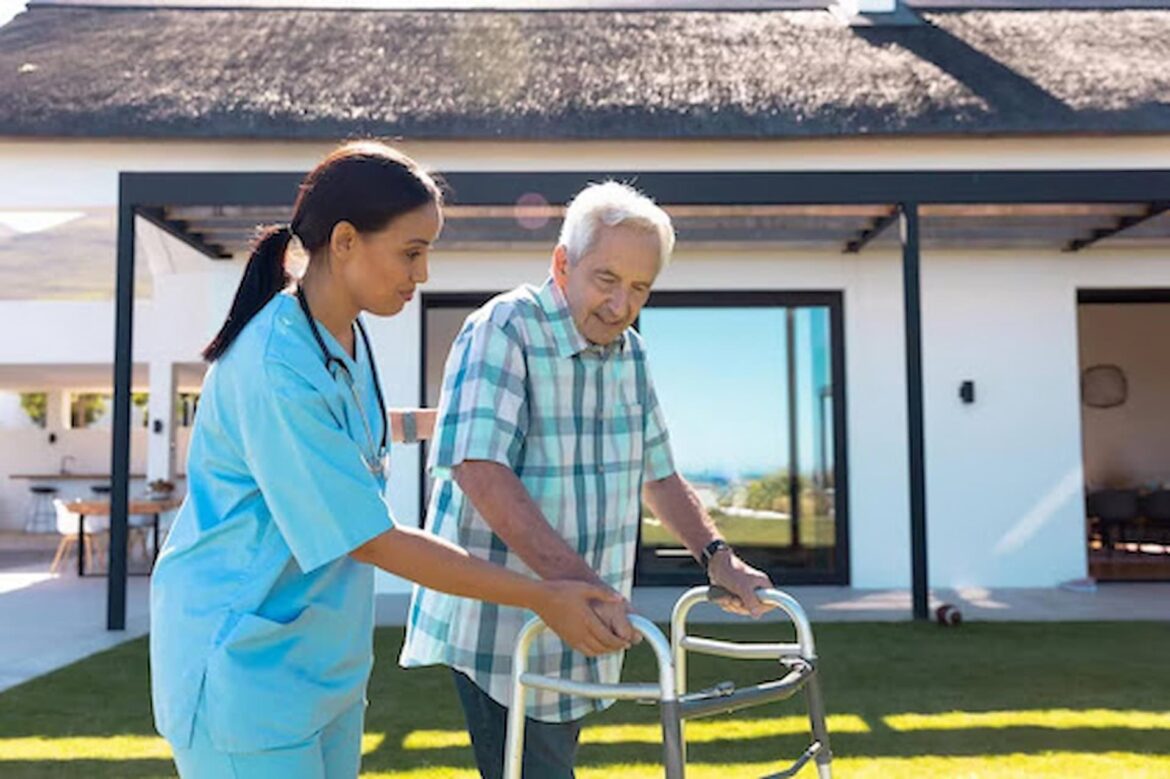In the nurturing environment of Brooklands Care Home, dedicated staff members work tirelessly to provide compassionate care to residents. However, the demanding nature of caregiving can take its toll, leading to burnout among caregivers. To ensure the well-being of both staff and residents, it’s crucial to implement effective strategies for preventing burnout. Here are some practical ways to support and care for the caregivers at Brooklands Care Home:
Encourage Self-Care
Caregivers often prioritise the needs of others over their own well-being. Encourage staff members to prioritise self-care by taking breaks, getting enough sleep, eating healthily, and engaging in activities they enjoy outside of work. Remind them that caring for themselves enables them to provide better care for residents.
Foster a Supportive Environment
Create a culture of support and open communication within the care home. Encourage staff members to share their feelings and concerns without fear of judgment. Provide regular team bonding activities and peer support sessions where caregivers can connect and share coping strategies.
Provide Training and Resources
Ensure staff members are adequately trained and provided with the necessary resources to excel in their roles. Conduct workshops and seminars focusing on stress management, building resilience, and practising self-care techniques. Empower caregivers with the expertise and understanding to handle difficult circumstances and avoid burnout.
Recognise and Appreciate
Acknowledge the hard work and dedication of care home staff regularly. Express appreciation for their efforts through verbal praise, written notes, or small tokens of gratitude. Recognising their contributions boosts morale and reinforces their sense of value within the organisation.
Implement Work-Life Balance Policies
Promote work-life balance by offering flexible scheduling options and reasonable work hours. Encourage caregivers to use their allotted vacation and sick days to rest and recharge. Avoid overloading staff with excessive workloads or unrealistic expectations that can contribute to burnout.
Address Workload Issues
Monitor staffing levels and workload distribution to prevent caregivers from feeling overwhelmed. Adjust staffing ratios to ensure staff members have adequate support to meet residents’ needs. Provide additional assistance during busy periods or when dealing with particularly challenging situations.
Foster a Positive Work Environment
Create a workplace atmosphere that cultivates positivity and encouragement, ensuring that staff members feel valued, respected, and empowered in their positions. Celebrate achievements, milestones, and successes as a team. Encourage laughter, camaraderie, and a sense of community among caregivers to boost morale and reduce stress.
Offer Employee Assistance Programs
Provide access to employee assistance programs (EAPs) that offer confidential counselling and support services to staff members facing personal or professional challenges. EAPs can provide valuable resources for coping with stress, managing emotions, and seeking help when needed.
Encourage Boundaries
Encourage caregivers to set boundaries between work and personal life. They need to disconnect from work-related stressors when they’re off-duty. Please encourage them to develop hobbies or engage in activities that help them unwind and recharge outside work hours.
Promote Physical Activity
Physical activity is a powerful stress reliever and mood booster. Encourage caregivers to incorporate regular exercise into their routines, whether through group fitness classes, walks during breaks, or simply stretching exercises. Engaging in physical activity enhances physical health and boosts mental well-being.
Provide Regular Feedback and Support
Offer regular feedback and support to caregivers to help them grow professionally and personally. Recognise their strengths and pinpoint areas for improvement, providing constructive feedback to aid their progress and achievements in their roles. Encourage ongoing professional development and training opportunities to keep caregivers engaged and motivated.
Foster a Sense of Purpose
Remind caregivers of their meaningful impact on Brooklands Care Home residents’ lives. Help them connect with the purpose behind their work and the difference they make in the lives of others. Cultivate a sense of fulfilment and pride in their contributions to residents’ well-being.
Lead by Example
Effective leadership is vital in averting caregiver burnout. Lead through actions by prioritising self-care, upholding a positive outlook, and nurturing a supportive workplace atmosphere. Show empathy, comprehension, and gratitude for staff endeavours, establishing a culture of care and compassion.
Conduct Regular Check-Ins
Arrange frequent check-ins with caregivers to evaluate their welfare and address any issues they may raise. Provide a safe space for caregivers to express their thoughts, feelings, and challenges openly. Use these check-ins to offer support, resources, and solutions to help caregivers navigate difficulties effectively.
Encourage Peer Support Networks
Facilitate the formation of peer support networks among caregivers at Brooklands Care Home. Please encourage them to lean on each other for support, advice, and encouragement. Peer support networks provide caregivers with a sense of camaraderie and solidarity, helping them navigate the ups and downs of caregiving together.







